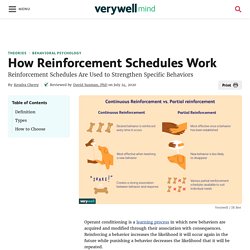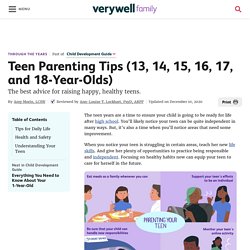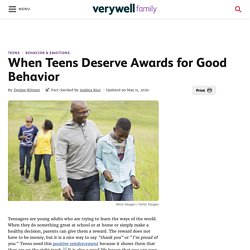

Parenting Teenagers. How to Parent a Teen from a Teen's Perspective. What is Happening? Erik Erikson 8 Stages of Psychosocial Development Theory. Adolescence. Erik Erikson’s Identity Crisis: Who am I? Engaging your Teenager. Introducing Skinner’s Operant Conditioning: Rewards & Punishments. What is Reinforcement & Punishment? Reinforcer & Punisher. Example of Reinforcement & Punishment. Schedules of Reinforcement. How Reinforcement Schedules Work. Operant conditioning is a learning process in which new behaviors are acquired and modified through their association with consequences.

Reinforcing a behavior increases the likelihood it will occur again in the future while punishing a behavior decreases the likelihood that it will be repeated. In operant conditioning, schedules of reinforcement are an important component of the learning process. Learning: Schedules of Reinforcement. How do we form New or Improve our Teenager's Behaviour? Appropriate Strategies. Teen Parenting Tips (13, 14, 15, 16, 17, and 18-Year-Olds) The teen years are a time to ensure your child is going to be ready for life after high school.

You’ll likely notice your teen can be quite independent in many ways. But, it’s also a time when you’ll notice areas that need some improvement. Parental Support. How to Reward Your Teen for Good Behavior. Teenagers are young adults who are trying to learn the ways of the world.

When they do something great at school or at home or simply make a healthy decision, parents can give them a reward. The reward does not have to be money, but it is a nice way to say "thank you" or "I'm proud of you. " Teens need this positive reinforcement because it shows them that they are on the right track.1 It is also a good life lesson that you can pass on: good things happen to good people.
When Do Teenagers Deserve a Reward? Ending Thoughts.